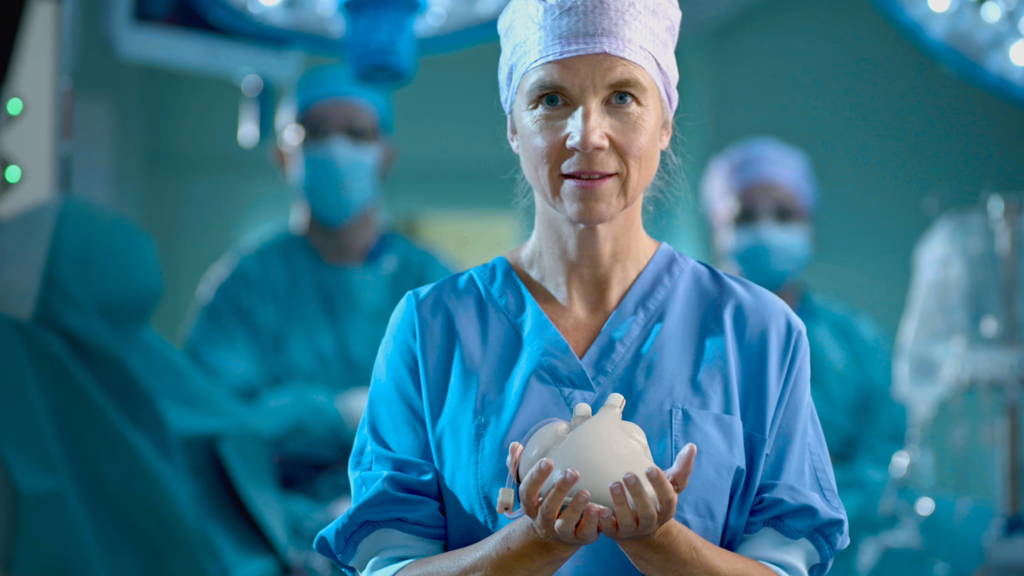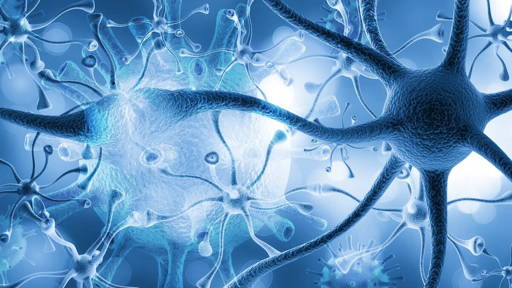A team of scientists, led by Erasmus MC and in collaboration with Eindhoven University of Technology (TU/e), has achieved promising initial results with the so-called Hybrid Heart – a soft, implantable robot heart that should eventually become a viable alternative to donor hearts and existing artificial hearts. The technology combines soft robotics with biocompatible materials and focuses on reduced rejection reactions, longer functionality and an improved quality of life for patients with severe heart failure.
The robotic heart simulates the natural functioning of the human heart by using a flexible, air pressure-controlled robotic muscle – the septum – that mimics the heartbeat. This clearly sets the Hybrid Heart apart from traditional mechanical artificial hearts, which are often associated with complications such as blood clots, infections and rejection.
Growing with the patient
Crucial to the design is the planned addition of a biodegradable inner layer of biocompatible material, developed at TU/e. This layer is intended to attract the body's own cells, so that ultimately only patient-specific tissue remains. Such an approach increases the chance of integration with the body and minimises the risk of complications.
‘If we can create materials that activate the body's own repair mechanisms, we will come very close to a regenerative artificial heart, in which we implant biomaterials that attract cells in the body and are slowly converted into living material,’ says TU/e professor of Cell-Matrix Interactions Carlijn Bouten.
Promising test results
The first preclinical results, recently published in Nature Communications, confirm the prototype's potential. In laboratory tests, the robotic heart pumped blood with a force comparable to that of a real human heart. The system also functioned for an hour in a large animal model – an important validation step towards clinical application.
A special aspect of the design is that it is controlled without the use of electronic signals. The robust but soft materials are pneumatically driven, inspired by principles from so-called soft robotics. ‘We use the same mechanism that makes ketchup squirt out of a bottle to simulate a natural heartbeat,’ says associate professor Bas Overvelde of TU/e.
Step towards clinical reality
According to Professor Jolanda Kluin, cardiothoracic surgeon and project leader at Erasmus MC, this breakthrough represents a scientific milestone: "We are getting closer to an implantable heart that is not only safe and effective, but also functions long-term without being rejected by the body. This will enable us to provide life-saving care in the future to patients who are currently dependent on donor hearts."
In the coming years, the researchers will focus on developing a fully implantable version for long-term preclinical testing. If these prove successful, a clinical phase will follow. The goal: the first use in humans within ten years.
Hybrid Heart project
The idea for the development of a soft implantable robotic heart arose when cardiothoracic surgeon Jolanda Kluin of the Erasmus MC Thorax Centre came across Bas Overvelde's work in the media years ago.
The project already received a European grant in 2019 for research into the development of a soft implantable artificial heart. In 2023, a further €10 million grant was awarded by the National Science Agenda.









